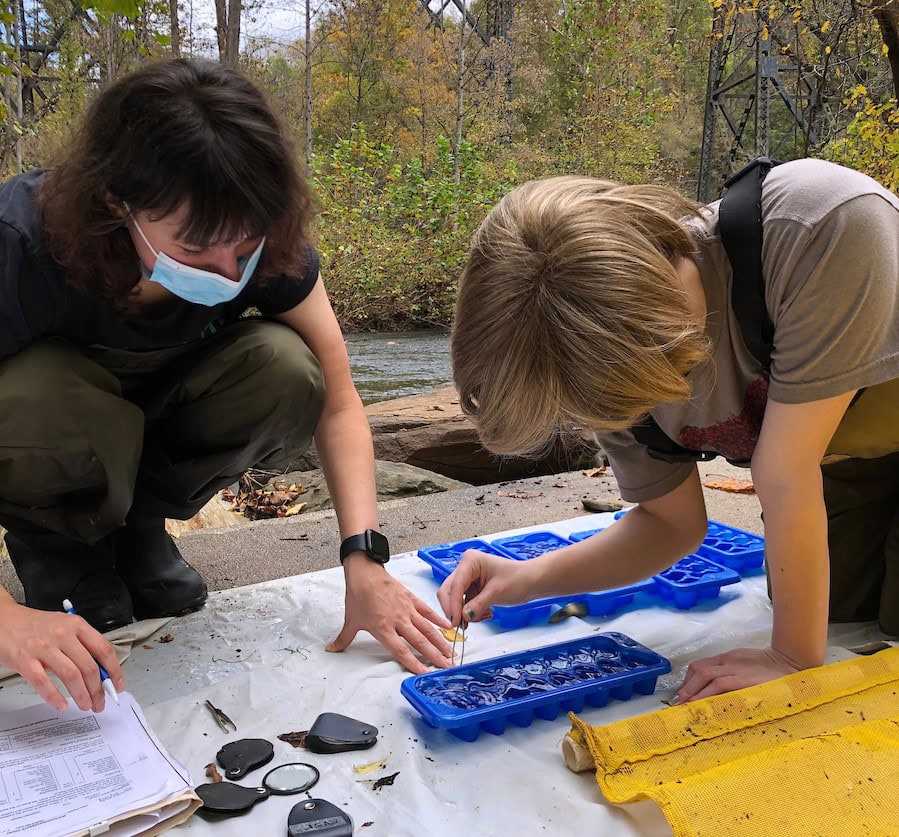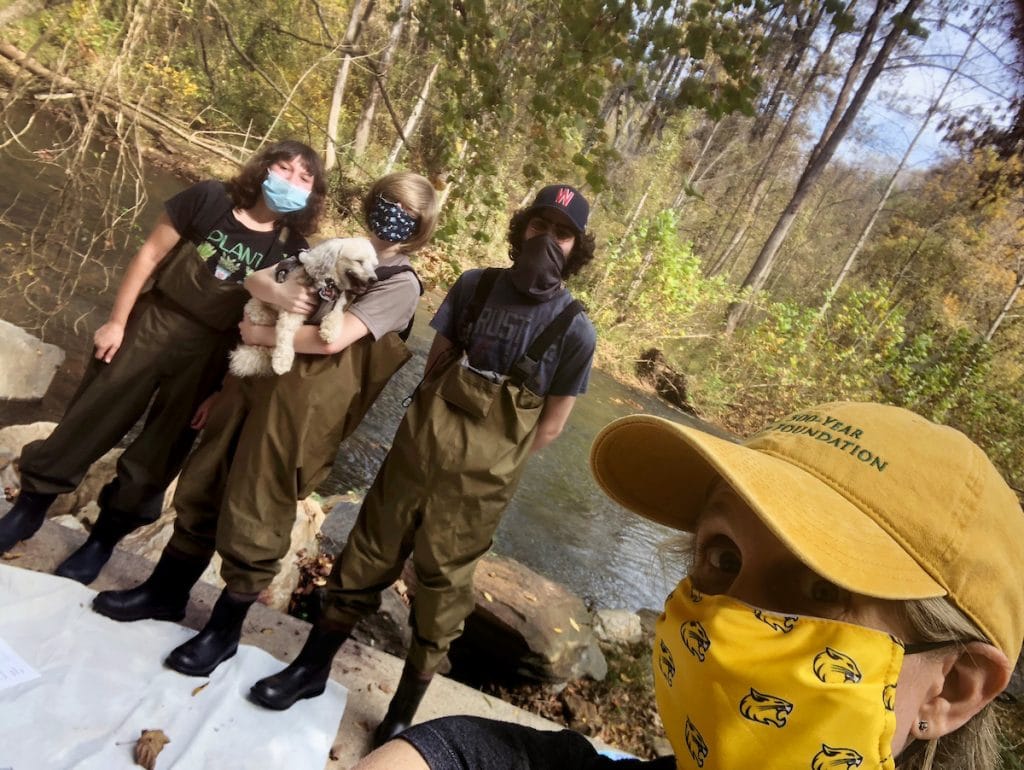Randolph professor, students continue water quality monitoring project despite pandemic

Sarah Greene ’24, Hailey Gilman ’22 look at samples taken from the Blackwater Creek in late October.
Randolph’s 18-year streak studying the Blackwater Creek continued in 2020—just with some masks and social distancing thrown in.
Karin Warren, Randolph’s Herzog Family Professor of Environmental Studies, began monitoring the creek’s water quality with students in 2003. The work includes chemical assessments, vegetation mapping, and physical observations, as well as the collection, identification, and release of macroinvertebrates from the stream. The data is then used to analyze the creek’s long-term health.
Some of the sampling can be completed by one person, but more participants are needed for the collection and assessment of the macroinvertebrates. Warren had several people on standby, including colleagues and Randolph alums, to help if needed. But three local students stepped up.

Karin Warren, right, takes a photo with Sarah Greene ’24, Hailey Gilman ’22, and Alex Long ’22 during their work at Blackwater Creek.
“I’m eager to take every opportunity to learn and was thrilled to have the chance to do hands-on environmental science work,” said Sarah Greene ’24, a local high school student taking dual enrollment courses at Randolph. “It was also a wonderful chance to meet Dr. Warren in person and spend a few hours with friends from the environmental club.”
The group—which also included Hailey Gilman ’22 and Alex Long ’22—did the work in late October, being careful to observe social distancing measures.
“We haven’t missed a year since 2003, and 2020 was not going to be the year we didn’t sample, pandemic or not,” Warren said. “It’s important to get data each year around the same time, so we can see long-term trends.”
In the past, students have done in-depth summer research to analyze their results and search for relationships between the data and trends in development and other activities in the watershed.
While the Blackwater Creek’s water quality is generally considered only fair, Warren said they have seen some improvements over time.
“This year, we didn’t find many macroinvertebrates, but the ones we did find were pollution-sensitive—stone fly nymphs, caddis flies, may flies, and water pennies—which is a good sign.”
Tags: environmental science, environmental studies, Karin Warren
